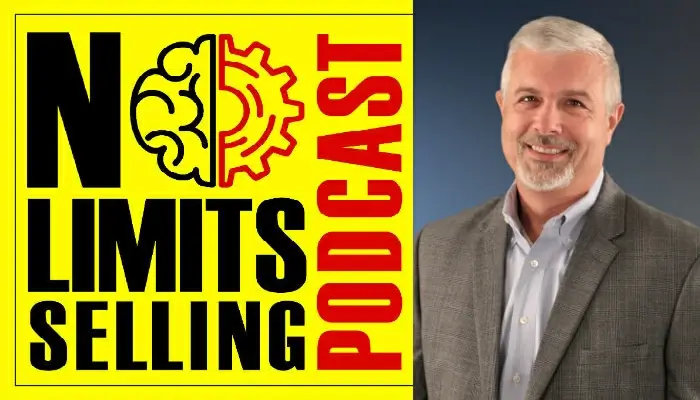The Future of Sales by Dave Mattson
Sandler Training (@SandlerTraining) named Dave Mattson (@Dave_Mattson) its CEO in 2007. During his years as CEO, revenue from the company’s Global Accounts Division has increased by 53 percent, international revenue by more than 145 percent and total company revenue by 35 percent. Business remained stable through the recent recession and, in fact, experienced an increased profit margin.
Dave Mattson oversees the corporate direction and strategy for the company’s worldwide network of operations including sales, marketing, consulting, alliances and support. His key areas of focus are sales leadership, strategy and client satisfaction.
Under Mattson's leadership, the Sandler organization expanded domestically and internationally to over 250 offices in 32 countries around the world. He added numerous program offerings to Sandler’s training portfolio, including Enterprise Selling, Leadership, and Customer Service programs, along with Sandler Certification, the first measurable, skills-based sales certification in the industry.
Podcast Highlights:
- Always be authentic
- Exceptional salespeople connect the what with the why
- Meet your customers where they are

Contact Dave:
- Website
[EDITOR’S NOTE: This podcast is sponsored by No Limits Selling. It is a fun, fast-paced podcast that delivers hard-fought business advice that you can implement today to improve your sales and performance]
Interested In Our Real Estate Coaching Services? Explore Our Website: Link
Feeling Not Well Today? You Can Use Our Mindset Boosters App To amp Up Your Mood: Link
Find us on Social Media:
LinkedIn | Facebook community | Instagram
Like what do you listen to? Subscribe to our podcast!
Ready to become fearless? We can help you become fearless in 60 days so you accomplish more in your career Schedule A 15 min Call with UmarSummary
Introduction
In the world of sales, few names resonate as powerfully as Dave Mattson. A renowned sales expert, Mattson has dedicated his career to the art of selling, transforming the way businesses approach their sales strategies. His insights, drawn from years of experience and a deep understanding of the sales landscape, provide invaluable guidance for those seeking to master the art of selling.
Future of Sales
At the heart of Mattson's philosophy is the Sandler Sales Methodology, a revolutionary approach to sales that has redefined the industry's standards. This methodology, which emphasizes the importance of a systematic and repeatable sales process, has been instrumental in helping businesses achieve their sales objectives. Mattson's discussion of the Sandler Sales Methodology provides a fascinating insight into the mechanics of successful selling.
The Importance of Sales Training
Mattson also underscores the importance of sales training. He argues that salespeople, like athletes, need regular training to hone their skills and stay at the top of their game. This training, he suggests, should be ongoing and should cover a range of areas, from product knowledge to negotiation skills. Mattson's emphasis on training underscores his belief in the power of continuous learning and improvement.
The Role of Leadership in Sales Success
Leadership, according to Mattson, plays a crucial role in sales success. He argues that effective leaders can inspire their teams to achieve their sales targets and can create a culture that fosters sales excellence. Mattson's insights into the role of leadership in sales success provide a compelling argument for the importance of strong leadership in the sales industry.
The Power of a Positive Mindset
Finally, Mattson discusses the power of a positive mindset. He suggests that a positive mindset can help salespeople overcome challenges and achieve their sales goals. This mindset, he argues, is a key ingredient in sales success and can make the difference between a good salesperson and a great one.
Conclusion
In conclusion, Dave Mattson's insights into the world of sales provide a fascinating and informative guide for anyone interested in mastering the art of selling. His emphasis on the importance of a systematic approach, ongoing training, strong leadership, and a positive mindset offers a blueprint for sales success.
Questions & Answers
Who is Dave Mattson?
What is the Sandler Sales Methodology?
Why does Dave Mattson emphasize the importance of sales training?
What role does leadership play in sales success according to Dave Mattson?
How does a positive mindset contribute to sales success?
What are the key takeaways from Dave Mattson's podcast?
Don’t miss this opportunity to transform your real estate career with one-on-one coaching. As an experienced real estate coach, I, Umar Hameed, am dedicated to helping you unlock your full potential and achieve your real estate goals. To learn more about who am I and my clients ↓
If you’re ready to take the next step, book an appointment with me today and begin your journey toward success in the real estate industry.
